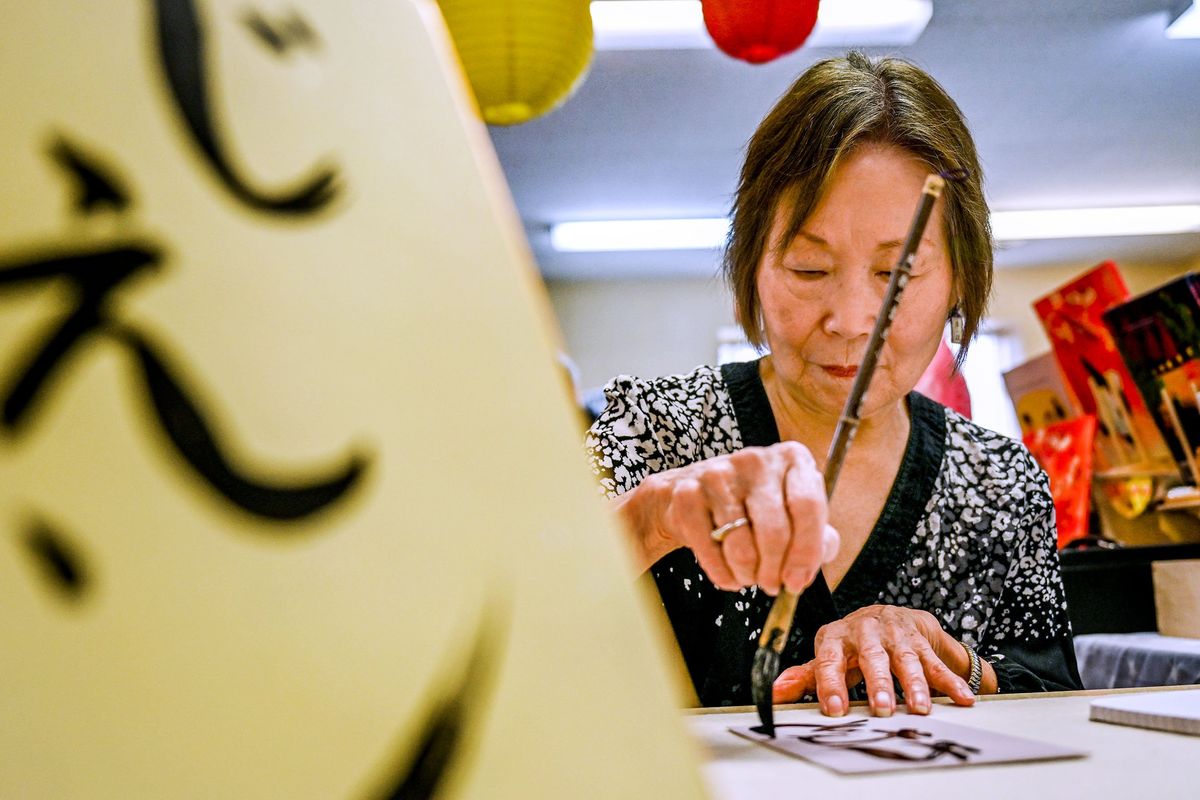‘A dance for joy’: Spokane Buddhist Temple celebrates holiday with 10th annual Obon Festival

Bon Odori dancers circle their kimono-clad instructor Izumi Pierce, as she takes deliberate steps to the beat of a massive taiko drum. Buddhist Mari Haworth stands in an audience of around 20 onlookers watching the traditional dance.
Thirty years prior, Haworth’s mother also danced Bon Odori at the Spokane Buddhist Temple in celebration of Obon, a Buddhist holiday honoring one’s ancestors. As she joyfully sways and pats her thigh to the beat on Sunday afternoon, Haworth thinks of her mother.
“If she were here, she’d be really happy we’re still doing it,” Haworth said.
The temple held their 10th annual Obon Festival on Sunday, selling handmade Japanese cuisine and crafts while teaching traditional dances. One of the most important holidays in the Buddhist faith, Obon is a celebration dedicated to one’s ancestors and the “causes and conditions” that lead a person to their present.
“Personally, it’s remembering my mother and father and their love of this temple,” Haworth said. “Remembering them and the good times we had in this temple together.”
Haworth began practicing Buddhism after her parents joined the temple, which now serves mostly those not born into the faith. She said she was compelled to join after volunteering at the temple.
“That was the first time I had ever been here, and I’ve been here ever since,” Haworth said in between collecting payments from festivalgoers.
Patrons bought plastic clamshells of plates filled with ube mochi, a chewy purple dessert made from sweet yams, and inari sushi, bite-sized soy pockets stuffed with sushi rice and topped with carrots and furikake seasoning.
Proceeds from the event go to the temple, which is run by volunteers from the Sangha, the group that practices there.
The temple, originally built from an old Baptist church, was destroyed in a fire in 1992. At the time, the Sangha included members that had received reparations from World War II internment camps in the United States that forcibly confined Americans with Japanese ancestry. Members pooled their restitution payments and funded the rebuilding of their temple.
Martena Peterson, former president of the temple and current Sangha member, said she appreciated the care that went into all elements of the redesign, from the carpet to their sect’s wisteria crest on the wall.
“It’s all very peaceful in here,” she said, looking around the temple. “(The architect) really knew how to pick things.”
As Peterson danced Bon Odori, she recalled her lineage that struggled and worked hard, providing her a strong foundation in life. Though she admits she can be rhythmically challenged, Bon Odori is a dance for joy, she said.
“It doesn’t make any difference if you can tell your left foot from your right,” she said. “Just dance.”
Longtime templegoer Narong Norasakkunkit controlled the sound system for the dancers at Sunday’s festival. For him, Obon isn’t about any one ancestor, but the whole family tree.
“The dancing is in celebration of our ancestors who passed away and standing on their shoulders,” he said. “It’s honoring the pathway they’ve made for us going forward.”
Pierce, a Buddhist of 20 years and leader of the Bon Odori dancers, said she thinks of her late brother on Obon. His Buddhist memorial service is what drew her to the faith. She dances for him, her father and other family members, reveling in the unity brought by her dance.
“What’s beautiful about the dance circle that we do, is that it unites people from all age groups, all personalities, all cultures, it brings people together,” she said. “And when people are together and they’re doing something in unison, it brings a special joy that you feel in your heart.”